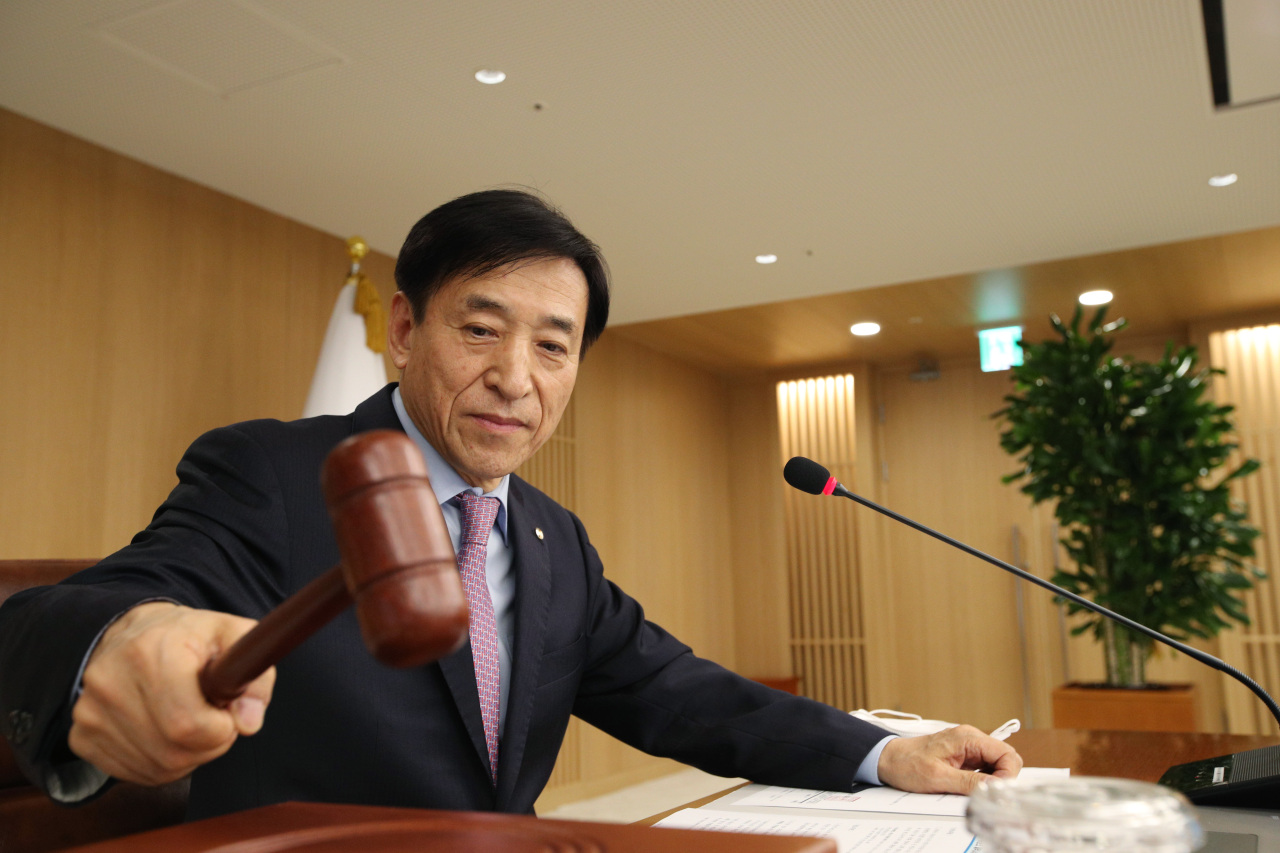BOK's rate cut in the offing, but 'when' still being debated

The Bank of Korea (BOK) will be prodded to further slash its key rate to support the virus-stricken economy, experts said Monday, but when it will push down the base rate to an unknown territory remains to be seen.
In a poll conducted by Yonhap Infomax, the financial news arm of Yonhap News Agency, 12 out of 18 experts surveyed anticipated to see a rate cut this month. But all but one expected the BOK to cut the rate by a quarter percentage point before the end of September, according to the survey.
The country's key rate currently stands at an all-time low of 0.75 percent after the central bank trimmed the rate by half a percentage point to the record low level in an emergency rate reduction in mid-March.
The central bank stood pat in April, highlighting the need to first assess the outcome of its emergency rate cut and other policy measures aimed at minimizing the economic fallout from the COVID-19 pandemic.
The BOK is set to hold its rate-setting meeting Thursday, the fourth of its kind this year. Its fifth meeting is slated for July 16.
Many experts expect the BOK to again slash the key rate this month, citing the worse-than-anticipated economic conditions.
"I anticipate a rate reduction in May. Local and external economic conditions have greatly worsened since April when the BOK kept the rate frozen," said NH Investment & Securities analyst Kang Seung-won.
One of the most serious problems facing Asia's fourth-largest economy is a sharp decline in exports, which, together with imports, are said to account for nearly half of the country's gross domestic product.
South Korea's outbound shipments plunged 24.3 percent on-year to $36.9 billion in April as overseas demand for autos and petrochemical goods dropped amid solid demand for semiconductors, a key export item for the country.
Such a sharp decline in exports also led to the country's first trade deficit in 99 months as imports moved down at a slower pace of 15.9 percent on-year to $37.8 billion in April.
South Korean exports are again expected to decline in May, with shipments tumbling 20.3 percent on-year in the first 20 days of the month.
"The BOK's room for an additional rate cut remains limited, considering that the difference between its base rate and that of the US only stands at 50 basis points," said Shin Dong-su, a strategist at Eugene Investment & Securities.
"However, a sharp down revision in its annual growth outlook remains inevitable due to two consecutive quarters of negative growth caused by sharp declines in exports. Also, should the BOK freeze the key rate in May, it will have missed its only chance to lower the rate in a very long time since there is no rate-setting meeting scheduled for June," Shin added.
The BOK revised down its growth outlook to 2.1 percent from the previous 2.3 percent in February, shortly after the country reported its first COVID-19 case on Jan. 20.
The BOK is widely expected to again slash its growth projection, in line with other major think tanks and institutions, some of whom expect the South Korean economy to shrink.
The International Monetary Fund expected the local economy to shrink 1.2 percent this year in its latest revision published last month. The state-run Korea Development Institute has lowered its growth outlook to 0.2 percent, which would mark the slowest growth since 1998, when Asia's fourth-largest economy shrank 5.1 percent in the face of the Asian financial crisis.
Still, many expect the BOK to wait for the right moment to cut the key rate in an attempt to maximize the effect of its monetary policy.
KB Kookmin Bank economist Kim Seon-tae insisted the central bank will at least wait for the government to secure and begin spending its third extra budget.
"A rate reduction in May does not seem appropriate, in terms of timing, because of the need to still study the outcome of the emergency rate cut in March and first two extra budgets," Kim said.
"Also, it seems that delivering a rate cut after a third extra budget as part of a policy mix will have a greater policy impact." (Yonhap)